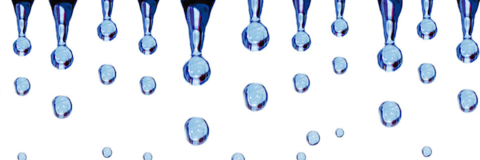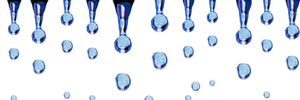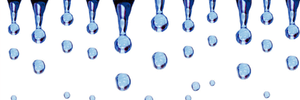Kidney Studies
Transperitoneal administration of hydrogen suppress peritoneal and systemic oxidative stress
Oxidative stress (OS) related to glucose degradation products such as methylglyoxal is reportedly associated with peritoneal deterioration in patients treated with peritoneal dialysis (PD). However, the use of general antioxidant agents is limited due to their harmful effects. This study aimed to clarify the influence of the novel antioxidant molecular hydrogen (H2) on peritoneal OS using albumin redox state as a marker. Effluent and blood samples of 6 regular PD patients were obtained during the peritoneal equilibrium test using standard dialysate and hydrogen-enriched dialysate. The redox state of albumin in effluent and blood was determined using high-performance liquid chromatography. Mean proportion of reduced albumin (ƒ(HMA)) in effluent was significantly higher in H2-enriched dialysate (62.31 ± 11.10%) than in standard dialysate (54.70 ± 13.08%). Likewise, serum ƒ(HMA) after administration of hydrogen-enriched dialysate (65.75 ± 7.52%) was significantly higher than that after standard dialysate (62.44 ± 7.66%). Trans-peritoneal administration of H2 reduces peritoneal and systemic OS.
Terawaki H, Hayashi Y, Zhu WJ, Matsuyama Y, Terada T, Kabayama S, et al. Transperitoneal administration of dissolved hydrogen for peritoneal dialysis patients: a novel approach to suppress oxidative stress in the peritoneal cavity. Med Gas Res. 2013 Jul 1;3(1):14.
Hydrogen-rich water in patients with interstitial cystitis and painful bladder syndrome
The objective of this study was to investigate the efficacy of hydrogen-rich water for the treatment of patients with interstitial cystitis/painful bladder syndrome (IC/PBS). Authors conducted a prospective, randomized, double-blind, placebo-controlled clinical trial of hydrogen-rich water in patients with IC/PBS. Inclusion criteria were stable symptoms of IC/PBS for ≥ 12 weeks after bladder hydrodistension, Interstitial Cystitis Symptom Index score of ≥ 7 and bladder pain (question 4 on Interstitial Cystitis Symptom Index) of ≥ 4. They were randomized by a 2:1 ratio to receive hydrogen-rich water or placebo water for 8 weeks. The symptoms were assessed using the Interstitial Cystitis Symptom Index, Interstitial Cystitis Problem Index, Parsons’ Pelvic Pain and Urgency/Frequency Patient Symptom Scale, visual analog scale bladder pain scores, and a standard 3-day voiding diary. The primary outcome was improvement of patient-reported symptoms evaluated after treatment. A total of 30 participants (29 women and 1 man, age 64.0 ± 14.8 years) were enrolled in the present study, and 2 patients (both women) were withdrawn from the study. The score of bladder pain was significantly reduced in both groups. However, the effect of hydrogen-rich water on symptoms was not significantly different from that of placebo, although supplementation with hydrogen-rich water was extremely effective in improving the bladder pain score in 11% of the patients. The results of the present study do not support the use of supplementation with hydrogen-rich water for treating patients with IC/PBS.
Matsumoto S, Ueda T, Kakizaki H. Effect of supplementation with hydrogen-rich water in patients with interstitial cystitis/painful bladder syndrome. Urology. 2013;81:226-30.
Adding molecular hydrogen to haemodialysis solutions ameliorated inflammatory reactions
Chronic inflammation in haemodialysis (HD) patients indicates a poor prognosis. However, therapeutic approaches are limited. Hydrogen gas (H(2)) ameliorates oxidative and inflammatory injuries to organs in animal models. We developed an HD system using a dialysis solution with high levels of dissolved H(2) and examined the clinical effects. Dialysis solution with H(2) (average of 48 ppb) was produced by mixing dialysate concentrates and reverse osmosis water containing dissolved H(2) generated by a water electrolysis technique. Subjects comprised 21 stable patients on standard HD who were switched to the test HD for 6 months at three sessions a week. During the study period, no adverse clinical signs or symptoms were observed. A significant decrease in systolic blood pressure (SBP) before and after dialysis was observed during the study, and a significant number of patients achieved SBP <140 mmHg after HD (baseline, 21%; 6 months, 62%; P < 0.05). Changes in dialysis parameters were minimal, while significant decreases in levels of plasma monocyte chemoattractant protein 1 (P < 0.01) and myeloperoxidase (P < 0.05) were identified. Adding H(2) to haemodialysis solutions ameliorated inflammatory reactions and improved BP control. This system could offer a novel therapeutic option for control of uraemia.
Nakayama M, Nakano H, Hamada H, Itami N, Nakazawa R, Ito S. A novel bioactive haemodialysis system using dissolved dihydrogen (H2) produced by water electrolysis: a clinical trial. Nephrol Dial Transplant. 2010;25:3026-33.



